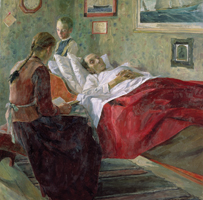Major reforms in the way the Catholic Church deals with broken marriages, announced this week, should go some way towards reassuring those who feared Pope Francis was weakening the Church’s teaching on the indissolubility of marriage. He has rewritten those sections of canon law that deal with marriage nullity – relationships thought to be marriage at the time but which, on subsequent examination, lacked one or more of the essentials of the sacrament of matrimony. The assumption the Church makes is that sacramental marriages should not break down, and when they appear to have done so, questions may be raised about their initial validity.
Nullity – and hence indissolubility – remains the basis of the Church’s theory and practice in this area. Reinforcing the emphasis on indissolubility, the Vatican wants to discourage the term “annulment” as that suggests wiping out something that was there before, rather than recognising that something was absent from the start. But establishing nullity by due canonical process had become frustratingly slow and often expensive. At last autumn’s synod of bishops there were many calls for it to be simplified. Heeding these justified demands, Pope Francis has ordered that henceforth the Church must bear the cost, not the applicant. The automatic requirement for every case, where the first court has accepted nullity, to be reviewed by a second tribunal, has now been lifted. Decisions in most instances will be made by one church official, overseen by the bishop.
In simple cases the bishop of the diocese will be allowed to issue a nullity decree himself without further ado. But the Pope appears to want some coordination of practice from one diocese to another, through the work of the episcopal conference. Otherwise applications for nullity may have different outcomes in different places. It is not yet clear how that coordination will work – or even whether it can.
Indeed, there are bound to be misgivings about the possible loss of objectivity resulting from a more diffuse system. Many Catholics whose first marriage broke down, and who undertook a civil marriage with a second partner, may take some persuading that these reforms offer them something worth having. An application for nullity is only likely to arise after a divorce, either after remarriage or with the prospect of remarrying, and that implies that many Catholic partners are already persuaded, in their own conscience, of the nullity of the previous relationship.
That is one reason why many priests have taken to dealing with these issues in the internal forum – basically, in the confessional – or simply by accepting the subjective judgement of the individual that they are not in a state of grave sin. Will it not in future look as if some remote church bureaucrat is being asked to rubber-stamp a decision already arrived at? And where does that leave everyone if he refuses? So the issue of admitting divorced and remarried Catholics to Communion, one of the most controversial issues on the agenda of the synod of bishops next month, has not gone away. It may have become more complicated.
10 September 2015, The Tablet
Marriage validity still hard to judge
La douce turns sour
 Loading ...
Loading ...
Get Instant Access
Subscribe to The Tablet for just £7.99
Subscribe today to take advantage of our introductory offers and enjoy 30 days' access for just £7.99



What do you think?
You can post as a subscriber user...
User Comments (0)